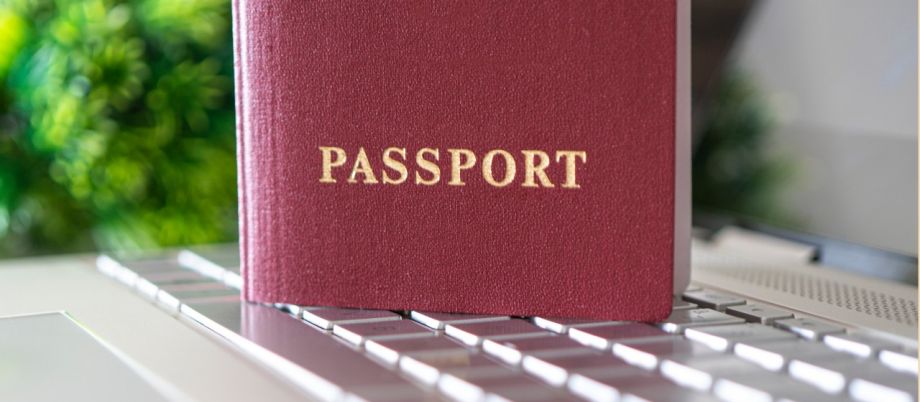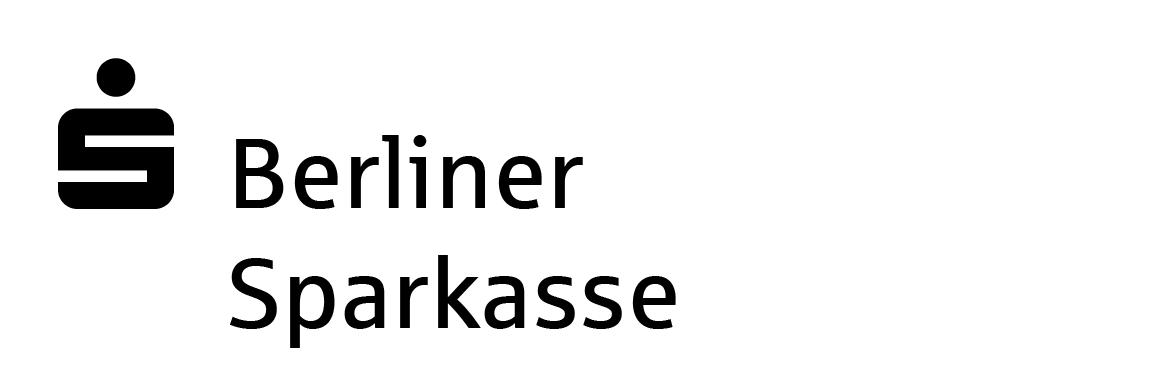
Registration of residence:
How to register when you have relocated to Berlin
Welcome to Berlin! You did it. New job, new flat and above all, a new country that comes with many new challenges. The bureaucratic procedures when you first arrive can be especially demanding. We will explain to you what registration is about, why it is essential and how to register in Berlin.
Table of Contents
- What is registration about?
- Who has to register in Germany?
- Where do I have to register?
- When do I have to register?
- How do I make an appointment for registration in Berlin?
- What documents do I need for registration?
- Where can I get the registration form?
- Whom do I get confirmation that I have moved in from?
- Why do I have to register in Germany?
- What do I have to consider when I move?
What is registration about?
Everyone who lives in Germany, whether a German citizen or not, must register in Germany. You must register with the responsible authorities – the Bürgeramt (citizens’ office) – where you have your residence or plan to have it. After successful registration you will receive your Meldebescheinigung (registration certificate) from the authorities. You will need this, for example, to open a bank account, to obtain your tax identification number for your employer and enter into a mobile phone contract and other contracts.
Important: Registration does not automatically give you permission to live and work in Germany.
You can find out more about the residence permit in Berlin here.
Who has to register in Germany?
As already mentioned, everyone who lives in Germany has to register at the citizens’ office of their city. You are only exempt from this obligation if you visit the country as a tourist or you plan to stay for no longer than three months. You also do not have to register if you are already registered in another German city and you plan to stay in Berlin for no longer than six months.

Where do I have to register?
Registration always takes place at a citizens' office. You do not have to register in the district where your flat or house is located – you can register at any citizens’ office in Berlin. At most offices, registration is only possible by appointment, which you can book most easily online. Here you can find a list of all the citizens’ offices in Berlin and all the information you need to register with them.
Our tip: Citizens’ offices that are not located in the city centre sometimes have more appointments available than those in the middle of popular quarters like Kreuzberg, Friedrichshain or Mitte.
You can find more information about the appointment process at Berlin’s citizens’ offices below.
When do I have to register?
As a rule, you should register your residence address no later than 14 days after you have found your flat. In practice, however, things often go differently. To get an appointment for registration at the Berlin citizens’ offices in time takes real luck. So don't stress if you don't get an appointment for another four or six weeks. Until then, you can use your rental agreement as official proof of your residence address.
What do I have to do if I can't find a flat in Berlin?
Unless you have a permanent address, you cannot register. Especially if you're staying at Airbnbs or hotels in the beginning, you won't be able to get the necessary paperwork for registration.

Getting started with your bank account
Sending and saving money has never been easier. Keep your money safe with online banking and the Sparkasse app. Enjoy excellent conditions, a wide variety of services and even expert advice at your Berliner Sparkasse.
How do I make an appointment for registration in Berlin?
The most important principle with Berlin authorities: never go without an appointment! If you don't have an appointment booked, you won’t be seen. Appointments for registration can be booked online or made through a special city hotline.
You can reach the city hotline at +49 30-115. Here you can also make an appointment for the citizens’ office or one of the other authorities by telephone.
 |
Tip: It's best to try to get an appointment at around 7 to 8 in the morning. This is often when new appointment dates are added to the system, so you may be able to get an appointment at short notice. |
 |
Tip: Many of the staff at Berlin's citizens’ offices do not speak English – or at least not fluently. To avoid unnecessary misunderstandings, have someone who speaks German accompany you or use a translation app. The most important documents – including the registration form – are available in English, so you should have no problems with them. A link to the form and instructions on how to fill it out can be found below. |
What documents do I need for registration?
Please note: To register your residence in Berlin, you must always appear in person at the citizens’ office (Bürgeramt). Individual exceptions may be made due to COVID or other reasons.
Tip: The best way to find out about the current COVID ordinances and the resulting regulations is to visit the Berlin citizens' offices website.
To register in Berlin, you must bring these documents with you:
- Identity card or passport
- Registration form
- Rental agreement
- Confirmation from the landlord that you have moved in
- For children moving into the flat with you: Children's identification documents or birth certificates
- Marriage certificates as required
- Residence permit (if you are not an EU citizen; this does not apply to citizens of Iceland, Lichtenstein, Norway and Switzerland)
By the way, registration is free of charge. You don’t have to pay any fees.

Where can I get the registration form?
You must bring the completed registration form with you to your appointment at the citizens’ office. You can download the German version here. You can find it at the very bottom of the page under „Formulare“. Check out this blog post for helpful instructions on how to fill out the registration form.
Whom do I get confirmation that I have moved in from?
To obtain confirmation from the landlord, you use a form, provided by the city of Berlin. You can download it here from the website of the city of Berlin. Your landlord must issue this form to you within 14 days of you moving in; he or she is obliged to do so by the Federal Act on Registration. Bring the filled out and signed confirmation from the landlord to your registration appointment in Berlin. Besides your landlord, a few other persons may also sign the confirmation.
- If you live in a shared flat, then the main tenant is allowed to fill in the confirmation for you.
- If you live with a friend or relative and don't pay any rent to them, they may also fill out the form.
- If you live in your own property, then as the owner you may complete the form yourself.
By the way, if your landlord or any other housing provider refuses to issue the confirmation, you must inform the registration office immediately. People who do not fulfil this duty risk a fine of up to €1,000.
Why do I have to register in Germany?
As already mentioned, registration is necessary for you to open a bank account or enter into contracts. Registration is also required for health insurance. You will receive your personal tax identification number once you register as well. This is required by your employer so that they can register you as an employee and tax your income accordingly. It's important to you, too, though. Because with just this number, the tax office is able to correctly determine your income and your tax and other contributions, so you do not have to worry about anything.
In addition, the obligation to register in Germany is a legal requirement in the Federal Act on Registration. Not only are administrative procedures performed on the basis of the registration data, but these data are also an important basis for planning, for example when it comes to determining the demand for day care or school places. In addition, statistics are collected based on these data and they are used to prepare elections and votes.
What do I have to consider when I move?
If you move, you need to register your change in address. As a rule, you also have 14 days to do this. So make sure you make an appointment for re-registration as soon as possible, if you know when the move is happening. If you change your residence within Berlin, just go to the citizens’ office again (with an appointment!) and register your new address there. For this you also need the abovementioned documents.
If you leave Berlin and move to another German city, you do not have to deregister in Berlin. All you have to do is register in the new city. You will be deregistered in Berlin automatically.

Get in contact with us
We will be happy to advise you
📞 030 869 869 20
✉ expats@berliner-sparkasse.de

Expats Magazine – Overview
Read more interesting articles here.
You might be interested in:

Residence permit in Berlin
Living and working in the German capital.

Your first to-do in Berlin
Opening a bank account

Welcome to Berlin!
Getting started with your bank account and basic features.
We, your Sparkasse, use cookies that are essential to providing access to our website. If you consent to the use of cookies, we will use additional, non-essential cookies in order to process information on your use of our website for analytical (e.g. to measure reach) and marketing purposes (e.g. to personalise content). As part of this, Google may also provide us with additional data. We also use cookies to assign visitors to specific target groups and provide these target groups to Google for advertising campaigns. For more detailed information about these cookies, please see our Privacy Statement. Cookie consent is optional and not required in order to use this website. To select the kind of additional cookies you are happy for us to use, please click on “Change settings”. You can also consent to the use of all additional cookies by clicking on “Agree”. You can withdraw your consent at any time or change your cookie settings by clicking on the “Change cookie settings” link at the bottom of each page. If you click on “Decline”, we will not use any additional cookies.
